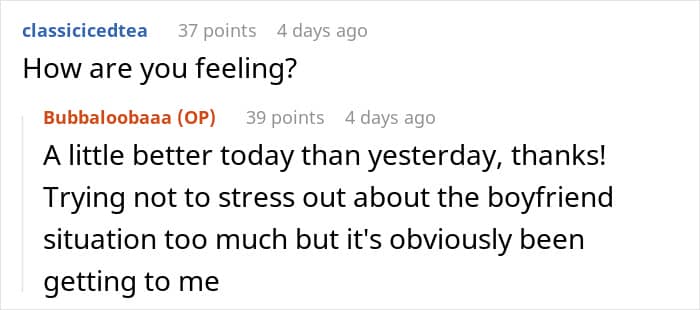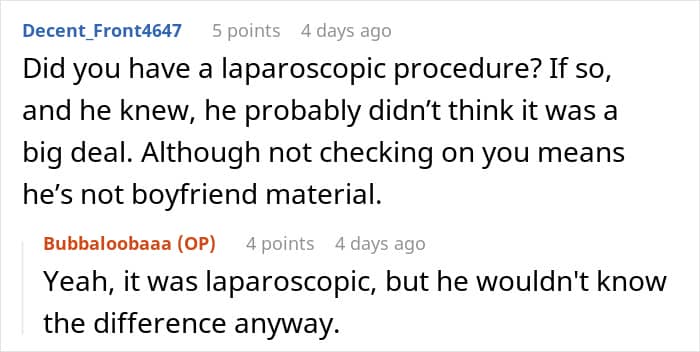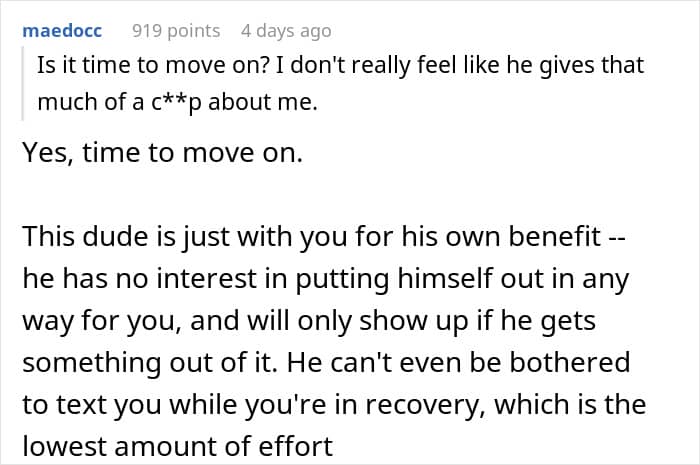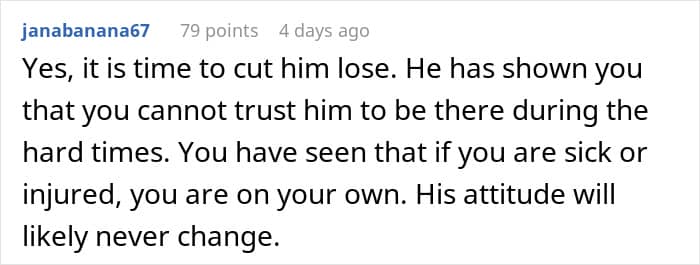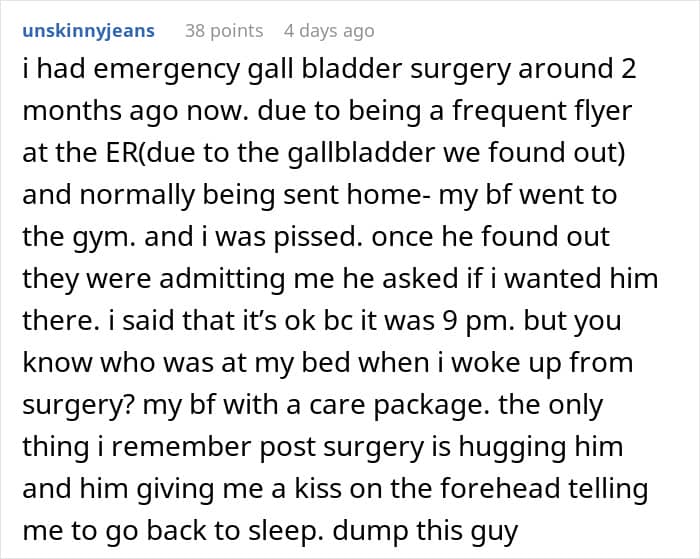Sometimes, it’s not the big milestones that reveal the truth about a relationship, but the quiet, difficult moments in between. When illness or hardship strikes, the strength of a partnership is often measured not by grand gestures, but by simple acts of presence and compassion.
That’s exactly what today’s Original Poster (OP) discovered after undergoing gallbladder surgery. As she recovered, she found herself facing not only physical pain but also emotional disappointment, realizing that the person she thought she could count on wasn’t willing to show up when it mattered most.
More info: Reddit
RELATED:Whether it’s helping you out of bed, bringing you water, or just sitting quietly to keep you company, a partner’s presence can make even the toughest recovery feel a little easier

The author underwent gallbladder surgery and became largely immobilized, relying on her disabled mother for basic care
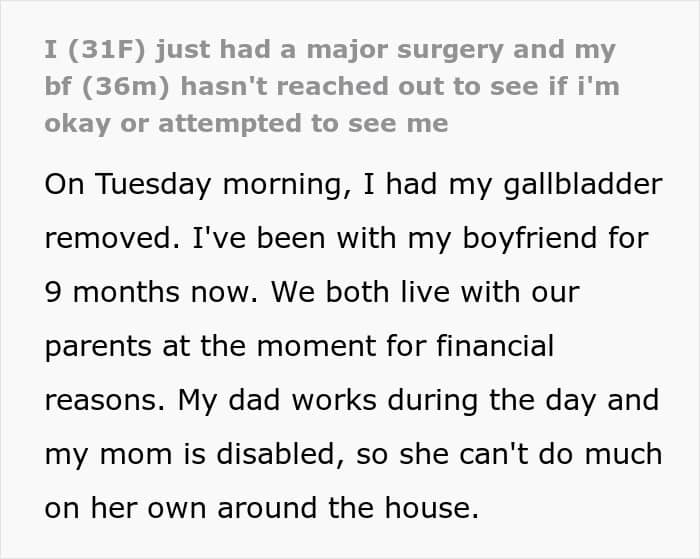

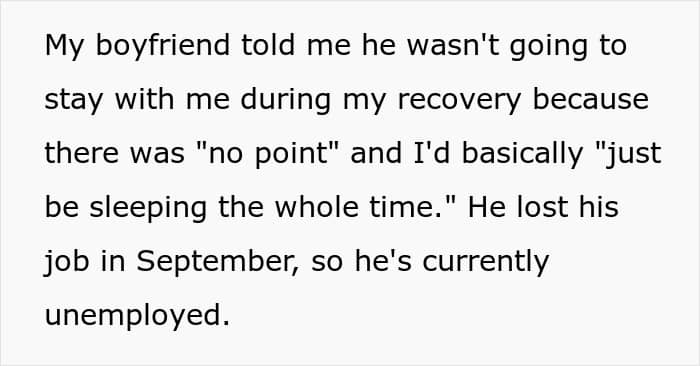
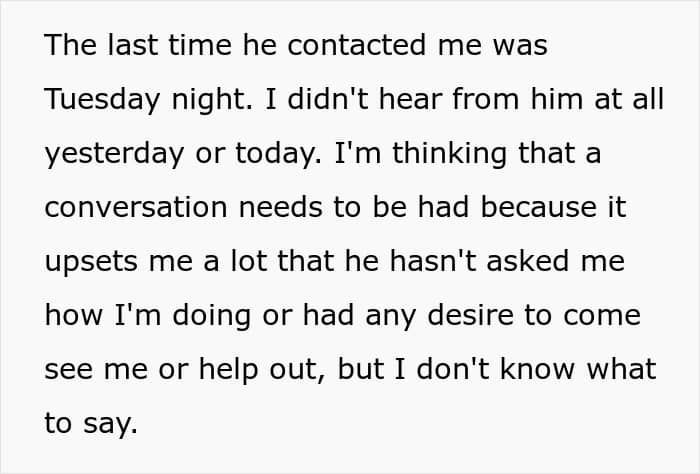
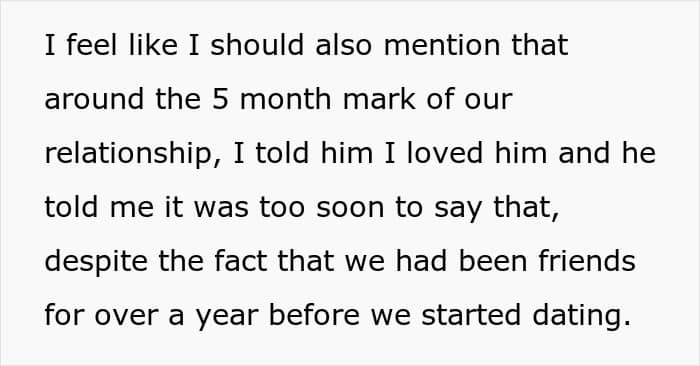

Her boyfriend of nine months refused to stay with her during recovery, saying there was “no point” since she’d mostly be resting

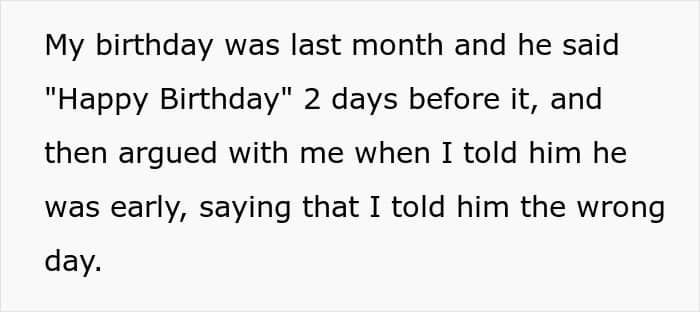
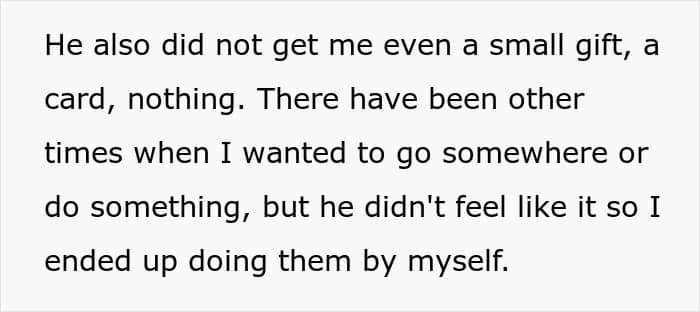


Over the following days, he didn’t check in or offer support, highlighting a pattern of emotional distance and neglect throughout their relationship
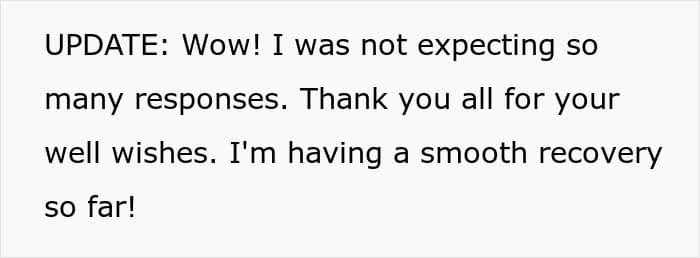

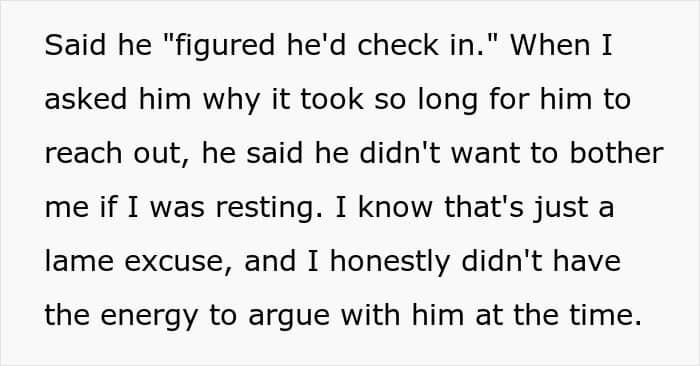
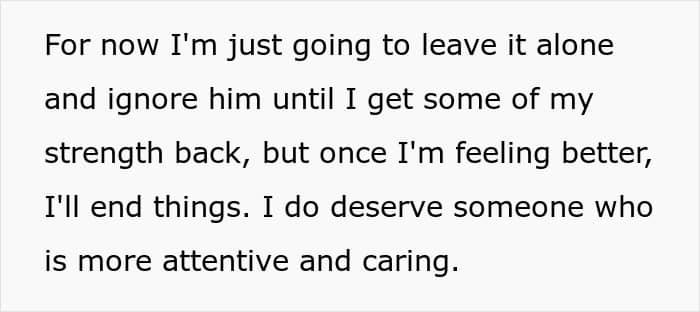

After he finally called with a weak excuse, she decided to prioritize her well-being and plans to end the relationship once she regains her strength
After undergoing gallbladder surgery, the OP found herself at home recovering and relying on her disabled mom for help. Her dad was working, her body was sore, and her boyfriend of nine months was nowhere to be found. Despite being unemployed and having plenty of free time, he announced there was no point in staying with her because she’d just be sleeping.
While she was struggling to get in and out of bed, he didn’t call or text for days, And when he finally did reach out, his excuse for his silence was that he “didn’t want to bother” her while she was resting. The OP noted that a few months earlier, she had told him she loved him, but he responded saying that it was too soon. This left her feeling upset, because they’d been friends for over a year before dating.
She also recalled that he wished her a happy birthday three days earlier and then accused of her telling him the wrong date in the first place. Mind you, he didn’t give her a gift or even a card, and he always found ways to bail out on things they should have been doing together.
In an update, the OP shared that she was now recovering well and was now recognizing the patterns in the relationship and planned to end things once she’s regained her strength.

Research shows that the quality of care and attention in a relationship plays a crucial role in both emotional and physical well-being, which directly connects to the challenges faced in the OP’s story. According to Love Discovery, lasting relationships often depend on the consistency of small acts of care.
They explain that regular gestures like checking in, helping with everyday tasks, or showing appreciation, help partners feel valued and secure, building trust and emotional intimacy over time. These small but steady acts are what truly strengthen long-term compatibility, far more than occasional grand gestures.
This emphasis on consistent care also aligns with findings from Verywell Mindset, which highlight the importance of emotional support for mental and physical health. Moreover, emotional support has been linked to better recovery rates and survival in patients facing serious physical illnesses, showing that attentive relationships benefit the whole person.
On the flip side, Psychology Today underscores the dangers of emotional neglect, showing that a lack of support can be as harmful as overt conflict or maltreatment. Emotional neglect impairs emotional regulation, increases feelings of sadness or anger, contributes to low self-esteem, social withdrawal, and over time, it can disrupt the ability to form secure attachments.
Netizens agreed that the OP should end the relationship, emphasizing that her boyfriend’s lack of care during her recovery revealed his true character. They pointed out that dating is about finding compatibility, not fixing someone who sounds like a real jerk.
What would you do if you were in the OP’s shoes? Would you forgive a partner who disappeared during your recovery, or is that a dealbreaker? We would love to know your thoughts!
Netizens criticized the author’s boyfriend’s irresponsibility, noting that he’s unemployed, living with his parents, and uninterested in supporting her when she needed him most
